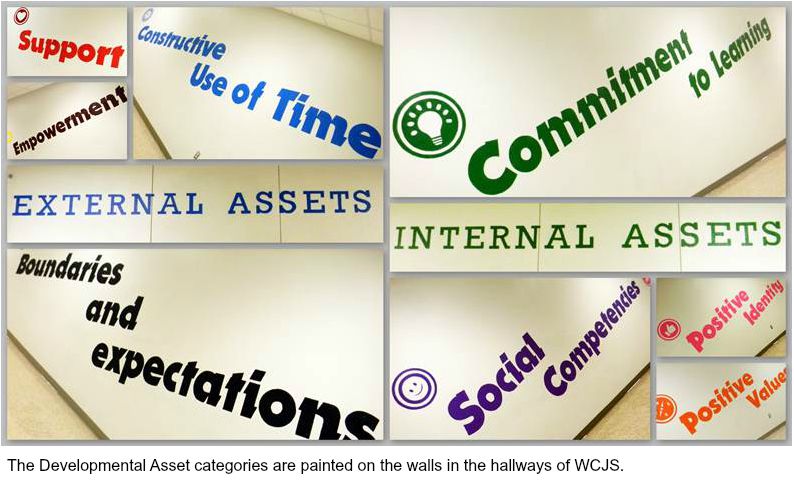Subscribe for Updates
“The system would identify problems and try to fix those problems. This ends up being a very negative approach,” says Williamson County (TX) Juvenile Services (WCJS) Executive Director Scott Matthew.
This is why around 7 years ago Matthew began looking at how WCJS—which includes a detention center, residential facilities, an on-site school, and community prevention programs—could take a positive approach in their work with youth and families. “These youth are already in what is perceived to be a negative place in a negative situation, so expanding on the positives they have going for them is very powerful.”
That’s when Matthew found The Georgetown Project, a community initiative in Williamson County that has been building Developmental Assets in the lives of youth since the 1990s. Matthew met with The Georgetown Project’s Executive Director Leslie Janca to discuss how his juvenile justice department could tap into the strong network of support for positive youth development already present in the community. “Juvenile services is kind of a nontraditional out-of-school time organization and we were really excited about having them as a partner,” says Janca.
“A big thing for me was that there was already an established language,” says Matthew about the Developmental Assets. He also highlights the fact that the asset framework of youth strengths and supports has been measured and used with millions of young people around the world. “Search Institute provides an evidence-based foundation about how kids thrive and succeed. If we build these things [assets] around them, we know we’re making an impact.”
Our Research: Measuring Intangible Strengths in Kids’ Lives >>
By adopting the Developmental Assets framework, WCJS staff found that they could more easily connect with other community partners who were also using the asset framework with youth. As Matthew explained, the alignment of philosophies makes young people feel more supported when they leave the juvenile justice system to work with outside agencies, which is a huge benefit for all involved.
Assets have also helped improve staff morale at WCJS. “The change in the organization has been huge,” says Mathew. “If you come to work every day just looking for problems, it’s not pleasant. When people have the feeling that they are doing something good and identifying positive things, it’s motivating.” Matthew says the organization still identifies problems, but the staff now creates positive programs to support those issues using the asset framework.

To build on this work with the Developmental Assets, WCJS recently started incorporating the Developmental Relationships Framework into their programming. “We have found it useful to connect Developmental Assets and developmental relationships,” says Assistant Chief and Director of Mental Health Services Matt Smith. “It’s hard to know how to build relationships. It’s difficult to find time. The Developmental Relationships Framework has helped us narrow our focus and get more strategic in using all that Search has given us.”
The organization has started a dialogue about the Developmental Relationships Framework and is planning to use the framework in the future as a professional development tool. “We have a really lively, ongoing discussion in our organization and we are finding many different ways to integrate Search Institute research into training and practical tools to use with youth,” says WCJS Prevention Coordinator and Chaplain Kory Capps.
Does Your School or Program Really Value Relationships? Six Questions to Ask >>
Matthew, Smith, Capps, and the WCJS staff have transformed the image of juvenile justice services in Williamson County. “We’re a resource, we provide youth services,” says Matthew. “Kids who come under our services are no different than the kids who don’t. It’s not a negative thing to be involved in juvenile services and the Developmental Assets have helped us come a long way to create that image.”
Search Institute
3001 Broadway Street NE #310
Minneapolis, MN 55413
© 2021 Search Institute |
Search Institute is a 501(c)(3) nonprofit charitable corporation. All contributions are tax deductible.